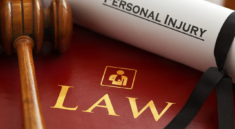The stars of the courtroom, in television and in real life, are lawyers and judges. But, just like any production, there are many people behind the curtain that are essential to the court system working smoothly. Without these unsung heroes, lawyers and judges would be at a real disadvantage, and the court would stumble to a halt.
Bail Bondsmen
A bail bondsman acts like an insurance agent for those waiting for a court date. After a person gets arrested, they are usually allowed to wait for their day in court at home if they pay a certain amount of money, called bail. A judge decides how much money the accused will have to pay in order to be released. However, a lot of people do not have that much cash readily available. This is where a bail bondsman comes in. Bail bondsmen give courts written agreements, called Lancaster County bail bonds, that promise bail will be paid in full if the defendant does not appear in court. Instead of providing the bail bondsman with cash, defendants can use other assets to cover the cost of their bail. They may use their home, car or even jewelry. Without bail bondmen, many defendants would have to wait for their court date in jail.
Paralegals
Paralegals perform administrative duties and legal tasks for a lawyer. They do the grunt work, the busywork, and provide the groundwork for lawyers to build their case. When they are working on a big case, some paralegals work 60 to 80 hours a week preparing. They research laws and past court cases. They may also collect, analyze and organize data for court cases. Paralegals handle the mountain of documents associated with working for a lawyer. Sometimes they are also responsible for handling scheduling and phone calls. Being a paralegal is not an easy job, but as any lawyer will tell you, it is an essential position in any law firm.
Court Clerks
Court clerks are sometimes appointed by the judge and sometimes they are elected. In order for a court to be considered a “court of record”, they must have a clerk. They are responsible for all records and any money from the court. Basically, a court could not function without the clerk. This position also does a lot of administrative duties, almost acting as a paralegal, but for the courts instead of lawyers. They also administer oaths, make official copies of court orders and judgments, and record licensing requests.





